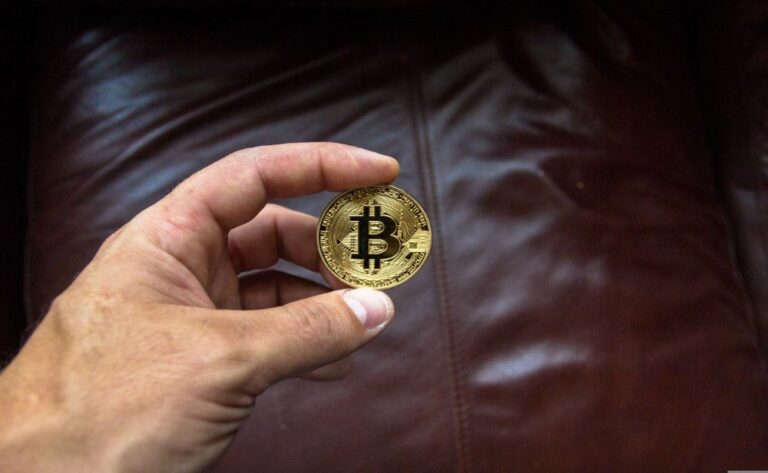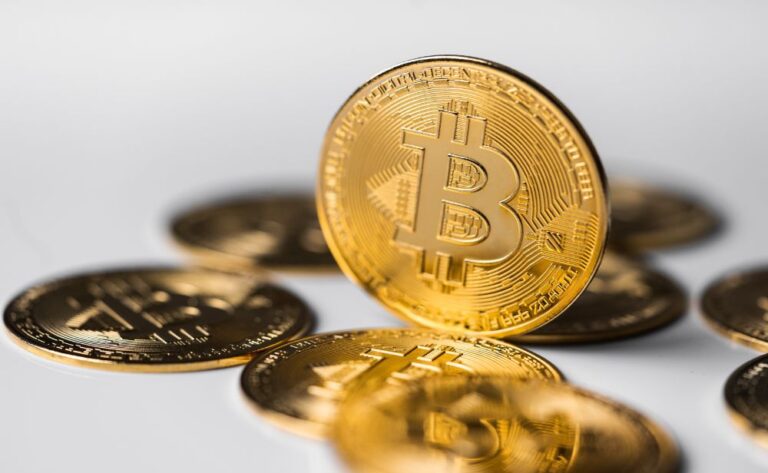5 Best Crypto Exchanges of September 2022

Crypto exchanges are where traders can buy, sell, and convert different cryptocurrencies. They are necessary for cryptocurrencies to be traded at the scale they are today. Some exchanges offer the most competitive prices or speeds, whereas others provide specialized financial products.
Read on to learn about the best cryptocurrency exchanges, how they work, and which one you should pick.
Our Top Picks for the Best Crypto Exchanges of September 2022
- Coinbase – Best for Beginners
- Binance.US – Best for Low Fees
- Crypto.com – Best for Security
- BlockFi – Best for Earning Interest
- Bisq – Best Decentralized Exchange
BEGIN TO INVEST IN CRYPTOS
Offer valid for U.S. residents aged 18 and up; account approval required. Other fees may be associated with trading.
The Best Cryptocurrency Exchange for Beginners is Coinbase.
• Intuitive, user-friendly interface and straightforward purchase procedure
• Extensive selection of educational materials
• Vast assortment of cryptocurrencies
CONS
• Increased costs
• Complicated fee structure
Why we selected it: We chose Coinbase as the best cryptocurrency exchange for beginners due to its user-friendly interface, extensive educational resources on topics ranging from blockchain to volatility, and robust security.
If you’re familiar with cryptocurrency, it’s likely that you’ve heard of Coinbase. The exchange is one of the largest and best-known in the United States, and its debut on the public market last year was viewed by many as legitimising the cryptocurrency market.
The Coinbase platform does an excellent job of lowering the barrier to entry for investing in cryptocurrencies, with a simple onboarding process that facilitates user trading. Moreover, its interface makes navigating the platform and managing cryptocurrency effortless.
Coinbase also offers an extensive and easily accessible selection of educational resources. The Coinbase Earn programme encourages users to utilise these resources by teaching them how to trade specific cryptocurrencies and rewarding them with free crypto.
Finally, it is important to mention the security features of the exchange: Coinbase uses two-factor authentication on all versions of its platform, stores 98% of customers’ crypto offline, and has a $250,000 insurance policy for custodial accounts (in line with per-depositor FDIC coverage limits). Despite its higher fees, Coinbase is ultimately worthwhile due to its robust security measures.
Users who enjoy Coinbase but desire more advanced trading and charting capabilities may wish to investigate Coinbase Pro, the company’s other exchange platform.
Binance.US has the lowest fees.
PROS
• Outstanding cybersecurity infrastructure
• Low fees if you fund your account with wire transfers
• Advanced trading charts and data graphs
CONS
• Credit card purchases cannot be made at present
•Certain services are unavailable in certain U.S. states.
Why we selected it: We selected Binance.US as the best cryptocurrency exchange for low fees because it has one of the most generous fee structures among the trading platforms we evaluated.
Binance is the largest cryptocurrency exchange in the world based on trading volume, and its U.S. partner, Binance.US, offers many of the advantages of Binance. A maker/taker fee structure that reaches a maximum of 0.1% is one of its greatest assets. This fee begins low and continues to decrease as your trading volume increases.
Binance.US also provides discounts for the use of Build and Build (BNB), one of the most popular utility tokens in the world, when purchasing or selling other coins.
The exchange offers more than 120 cryptocurrencies, all of which are purchasable with USD, saving buyers of cryptocurrencies money on conversion fees. This variety of discounts and purchase options is advantageous for advanced users, who may also appreciate the platform’s extensive market dashboards, margin trading, and variety of order types, such as limit orders, market orders, and stop limit orders.
Hawaii, New York, Texas, and Vermont do not offer access to Binance.US.
Security-Worthy: Crypto.com
PROS
• Outstanding cybersecurity infrastructure
• Low fees if you fund your account with cash transfers
• Large selection of crypto assets CONS
• Expensive use of credit cards and debit cards
• Certain services are unavailable in the United States.
No cryptocurrency-to-cryptocurrency trading options
Why we selected it: Crypto.com was selected as the most secure cryptocurrency exchange due to its multiple layers of protection against crypto fraud and cyber attacks.
Most reputable cryptocurrency exchanges have a robust cyber security infrastructure, but Crypto.com stands out in this regard. The exchange has the highest cyber security rating among the top 100 exchanges ranked by the Cyber security Ranking and Certification Platform.
Crypto.com employs a variety of security measures to safeguard the cryptocurrencies of its users on its trading platform, including offline cold storage for all cryptocurrencies, a regulated custodian bank account for fiat currency, and regular software peer review. In addition, it employs multifactor authentication with a password, biometric, email, phone, and authenticator.
In addition, its platform has passed multiple penetration tests, which simulate cyberattacks to evaluate system security, and has provided evidence of its funds over the years.
Security is not the only allure of Crypto.com. The exchange offers the greatest variety of currencies among all the companies on our list: over 250 different coins.
Other notable features include its non-custodial DeFi wallet, which enables users to send cryptocurrency at their desired speed and earn interest on tokens, margin trading, Visa prepaid cards for spending cryptocurrency, and crypto loans.
BlockFi is best for gaining interest.
• Earn monthly interest on your cryptocurrency holdings
• Institutionally backed and based in the United States
• No commissions or monthly account fees
CONS
• Interest accounts have restricted no-fee withdrawal privileges
• Available products vary substantially from state to state
Why we selected it: We selected BlockFi as the best cryptocurrency exchange for earning interest because it enables users to earn interest on their cryptocurrency holdings and borrow funds using Bitcoin as collateral.
Whereas the majority of cryptocurrency exchanges offer bonuses and discounts for high-volume trading, BlockFi has opted to develop financial products for conservative traders.
The highlight of the exchange is its BlockFi Interest Account, which offers monthly compounding interest of up to 9.5% APY to crypto investors who store assets in the account. The platform also allows users to use their bitcoin holdings as collateral for loans.
In addition to its innovative financial products, BlockFi offers a reasonable fee structure and a robust cyber security infrastructure. Trading on the exchange is subject to spread fees and withdrawal fees, but not transaction fees. BlockFi uses tools such as two-factor authentication and allow listing to protect your data from theft, allowing users to prohibit withdrawals or restrict them to specific addresses.
Decentralized finance (DeFi) products and services, such as BlockFi, carry significant risks associated with the software’s underlying technology, the assets involved, and regulatory compliance.
Best Decentralized Exchange: Bisq
• Allows transactions with a wide variety of coins and conventional currencies
• Diverse payment options
• Rapid verification procedure
CONS
• The mobile version only supports notifications
Must only trade using Bitcoin or BSQ.
Why we selected it: Bisq was selected as the best decentralised exchange because it adheres most closely to the Bitcoin ethos by maintaining a completely decentralised, open-source platform with unlimited currency support.
Bisq, formerly known as Bitsquare, brings to a decentralised environment the clean, user-friendly interface and extensive coin support of centralised exchanges. The platform is based on open-source software, which makes its design accessible to the public, and the project is funded by personal savings and contributions from the user community.
To conduct cryptocurrency transactions, Bisq does not require a third party, nor does it require users to submit personal information to trade on the platform. It’s an excellent alternative for Bitcoin enthusiasts looking to trade a wide variety of coins, such as Cardano, XRP, and Dogecoin. In fact, it is uncommon for decentralised exchanges to support so many digital assets in addition to fiat currency.
In addition, the platform’s security features, such as multisignature and a security deposit system, enhance the inherent safety and privacy of decentralised exchanges by ensuring that both parties act honestly and retain full control of their funds throughout the trading process.
Public possesses a number of characteristics that make it the best place to begin trading. Commence investing today!
GET STARTED
Offer valid for U.S. residents aged 18 and up; account approval required. Other fees may be associated with trading. Please visit Public.com/disclosures.
Other cryptocurrency exchanges we evaluated
The platforms listed below are all excellent options, particularly for novice traders. However, they are not cryptocurrency or bitcoin-specific exchanges; rather, they deal primarily in other securities, such as stocks and futures. Due to this, we decided to list them separately.
Public \PROS
Social trading allows you to see what others are purchasing and selling.
• Absence of technical charts and research tools
• Lengthy withdrawal waiting period
PROS
• No commissions and minimum account balance
• Extremely simple to use and begin trading
• Heavily regulated by the Securities and Exchange Commission
CONS
• No commissions and minimum account balance
• Absence of mutual fund and forex trading; absence of educational content and research resources
PROS
• Recurring purchases and real-time price alerts
• Cryptocurrency withdrawals to only approved addresses
• Transaction histories and downloadable account statements
CONS
• Higher trading fees than other exchanges
• Fewer options for customer service
PROS
• Trade across multiple exchanges using a single platform
• Crypto staking and margin trading
• Rigorous security standards
• Low fees and spreads
CONS
• Trade across multiple exchanges using a single platform
• Crypto staking and margin trading
• Limited number of funding options; not available in every US state (via fiat currencies)
• Active investment community, perfect for social trading
• Allow crypto staking for certain coins
• Extensive choice of cryptocurrencies
• Unsatisfactory withdrawal and spread fees
• Cryptocurrency trading is not permitted in all states
Cash.app
PROS
• One of the simplest venues to acquire Bitcoin and begin crypto trading
• Lock in rates instantly and withdraw swiftly
• Send and accept mobile payments
CONS
• There is no protection from the FDIC
• It cannot be used to make international payments
• Can trade only Bitcoin; no other cryptocurrencies supported
Guide to Crypto Exchanges
Despite having entered the mainstream, cryptocurrency remains a complex topic for investors of all levels. How precisely do they operate? What are the various exchange kinds, and how do they differ from cryptocurrency wallets? Learn the ins and outs of bitcoin exchanges by reading our guide.
What exactly is a cryptocurrency exchange?
Crypto exchanges are marketplaces where users can trade digital currencies for other assets, including cryptocurrencies such as Bitcoin (BTC), Ethereum (ETH), and Litecoin (LTC) and fiat currencies such as the U.S. Dollar and the Euro.
The majority of traditional financial businesses do not include cryptocurrencies in their portfolios, making exchanges an integral aspect of the crypto ecosystem. Without exchanges, you would need to find a willing crypto trader and agree on an exchange rate. Then, you would have to send the funds directly to one another’s bitcoin wallets, which is a pretty confusing process.
Wallet versus exchange
Wallets and exchanges are crucial tools for managing cryptocurrency. Exchanges are trading centres where users convert fiat currencies to digital ones and purchase and sell cryptocurrencies based on the current market price.
Many crypto exchanges maintain their own wallets, allowing customers to begin trading cryptocurrencies as soon as they establish an account without needing to acquire their own digital wallet. These are known as web-hosted wallets, and their security procedures are the responsibility of the associated exchange.
Serious traders are urged to maintain a separate cryptocurrency wallet for coins they are not currently trading. If the exchange is hacked, you could lose all of your digital possessions.
Although you will be responsible for securing, backing up, and managing your own assets, independent digital wallets are a significantly safer choice for storing the majority of your cryptocurrency.
How do cryptocurrency exchanges operate?
How cryptocurrency exchanges function relies on the sort of platform they use. The majority of crypto trading platforms are known as centralized exchanges, which serve as brokers between buyers and sellers.
Known as crypto-to-crypto spot trading, users can deposit fiat currency into exchanges to purchase cryptocurrency, or they can deposit their own cryptocurrency to trade for other cryptocurrencies. Traders can expect to pay a fee when converting one cryptocurrency to another, just as they do when trading fiat currency (for example, converting USD to EUR).
In exchange for digital currencies, exchanges may take a vast array of payment methods, such as credit card payments, direct bank transfers, credit or debit cards, money orders, and even gift cards.
Dedicated cryptocurrency and bitcoin exchanges will allow you to withdraw your cryptocurrency funds and move them to a wallet of your choosing. Others, particularly those that focus on other assets, such as equities and ETFs, such as Robinhood and eToro, allow you to purchase cryptocurrencies but not transfer them from their web wallets.
What are the many sorts of cryptocurrency exchanges?
There are three types of cryptocurrency exchanges: centralised, decentralised, and hybrid.
Centralized markets (CEX)
Centralized exchanges are the most prevalent and conventional kind of cryptocurrency exchange. These are platforms controlled by private corporations that enable investors to exchange cryptocurrency. This form of exchange typically features increased transaction volumes, liquidity, and trading pairs.
Centralized exchanges are frequently regarded as a viable choice for novice crypto traders due to its superior onboarding and user interface, customer support availability, and insurance should the platform’s infrastructure fail.
This form of interaction is problematic since consumers are inherently more susceptible to hacker assaults. Some users are also uneasy about providing their private information throughout the KYC process.
Binance, Coinbase, Kraken, and Gemini
Decentralized markets (DEX)
In the spirit of Bitcoin, decentralised exchanges operate without a central point of control. The servers for this form of communication are geographically dispersed, so even if one computer is attacked, the network continues to function. This alone attracts many customers who are concerned about losing their cryptocurrency due to a security fault in a company’s trading platform.
Decentralized exchanges act more like markets than controlled exchanges do as brokerages. They facilitate peer-to-peer trading and have a registration procedure that is less stringent. The primary disadvantages of decentralised exchanges are their low trading volume, limited liquidity, often poor user interface, and absence of customer service.
Bisq, Uniswap, PancakeSwap, Tokenlon, and dYdX are other examples.
Hybrid exchanges
A new generation of cryptocurrency trading platforms, hybrid exchanges aim to deliver the best of both worlds. They intend to solve the constraints of existing exchanges by combining the enhanced functionality and liquidity of centralised exchanges with the security benefits of decentralised exchanges.
Hybrid exchanges offer quick transaction times without sacrificing the anonymity of their users, but they are still a relatively new phenomenon in the cryptocurrency industry. Due to exorbitant prices, limited scalability, and limited assets, only time will tell if they will be successful or fail.
Nash, Qurrex, Eidoo, Legolas are few examples.
Understanding cryptocurrency exchange fee Structures
There are numerous costs associated with crypto exchanges, and it is not always apparent what you will be charged.
Exchange costs and network fees are the two primary types of fees to watch out for.
Exchanges generate revenue through exchange fees. In other words, these are service costs that include the following:
• Trading fees, levied when transactions are made, are sometimes known as “maker/taker fees.” Trading fees reveal whether or not a cryptocurrency order provides liquidity to the market. Also applicable while exchanging currency.
• Deposit fees, imposed when customers contribute funds to their account, typically using debit card, credit card, or PayPal as opposed to wire transfer.
• Withdrawal fees, levied when ordinary dollars or cryptocurrencies are withdrawn from an account.
• Account fees charged periodically, typically monthly.
Network fees are paid to cryptocurrency miners, who execute and protect blockchain-based crypto transactions. Numerous centralised cryptocurrency exchanges bear this cost, while some may permit their users to pay higher miner fees to accelerate transaction speeds. As there is no middleman between them and the cryptocurrency miners, users on decentralised exchanges are typically responsible for this cost.
What to consider while selecting a cryptocurrency exchange
When selecting a cryptocurrency exchange, you should prioritise functionality and security measures. Your chosen exchange should offer the majority, if not all, of the features you anticipate using, such as fiat-to-currency transaction pairings, liquidity aggregation, and the altcoins and stablecoins you wish to trade. It should also give extra lines of defence against hackers, such as two-factor authentication and Bitcoin locks.
Another issue to examine is the platform’s usability, which is particularly crucial for novice traders who may struggle to use systems with a less intuitive user interface. However, even skilled traders can profit from improved usability.
Geography is also crucial to consider. Some exchanges are only available in particular states in the United States.
How to determine if a cryptocurrency exchange is legitimate and safe
When searching for a cryptocurrency exchange, it is crucial to remain vigilant for phoney websites and mobile applications. Even if the platform appears to be real, make sure to check for misspellings in the copy, fake branding, and, in the case of a website, a small lock icon denoting security near the URL bar.
Similarly, it is crucial to remember that, scams aside, trading cryptocurrency can be risky. Cryptocurrencies are highly volatile, meaning that their prices are prone to abrupt rises and drops that even the most astute investors cannot accurately predict.
Financial gurus urge exercising prudence and limiting bitcoin investments to less than 5% of your whole portfolio.
How to register for a cryptocurrency exchange
Each cryptocurrency exchange has a unique registration and setup procedure. Some exchanges may let account creation without identification verification or the submission of sensitive information. Others will need new users to complete a rigorous “Know your Client” (KYC) procedure in order to comply with U.S. federal rules designed to prevent money laundering and fraud.
However, some registration components are common between platforms. For most crypto exchange platforms, you will need the following information and documentation to open an account:
• Your complete name and birth date
• Your telephone number and email
• Your physical location
• Your number assigned by the Social Security Administration
• A government-issued ID (such as a driver’s licence or passport) together with a photo of you holding it or a scan of the ID
Typically, the registration process begins with a request for personal information, followed by an email to confirm your address. Additionally, some exchanges may request a copy of a utility bill issued to your actual location and question about your desire to trade cryptocurrencies. Then, you must add a payment method to the exchange in order to deposit funds and begin buying and selling cryptocurrencies.
Recent Cryptocurrency Exchange News
Investors in cryptocurrencies are preparing for the so-called Ethereum Merge, an upgrade to the Ethereum blockchain that could fundamentally alter the future of cryptocurrencies. Some investors anticipate that the upgrade would make transactions more efficient and reduce the chain’s energy usage, resulting in an increase in coin values across the board. The Merge is anticipated to commence early in September.
In an effort to further regulate the cryptocurrency market, the IRS modifies the crypto question on tax returns once again. According to a modified draught of the 2022 version, the question will now be “During 2022, did you: (a) receive (as a reward, award, or remuneration); or (b) sell, trade, give, or otherwise dispose of a digital asset (or a financial interest in a digital asset)?” This updated language may help alleviate some of the uncertainty caused by the inquiry regarding the previous year’s tax return.
Cryptocurrency Exchanges FAQ
Why is crypto not working?
Cryptocurrencies are declining because they are subject to the same causes affecting equities and other financial assets. The global economy has been destabilised by rising inflation, rising interest rates — which make it more expensive for firms to borrow money — and events such as the crisis in Ukraine. This has spread to the bitcoin market, already notorious for its extreme volatility.
What is the leading cryptocurrency exchange?
There is no single optimal exchange for all users. However, the greatest cryptocurrency exchanges share the following characteristics: robust security systems, minimal fees, several payment alternatives, an accessible platform, and mobile and desktop accessibility.
A wide number of tradable cryptocurrencies, including several altcoins and trading pairings, such as Bitcoin/Litecoin (BTC/LTC) and Ethereum/Bitcoin Cash (ETH/BCH), should also be considered.
How many cryptocurrency exchanges exist?
Because crypto exchanges do not register with a central body, it is difficult to determine the number of crypto exchanges at any particular time. Many exchanges may be established and subsequently closed over a short period of time, which makes tracking this figure even more difficult.
The three largest exchanges listed on CoinMarketCap as of 1 September 2022 are Binance, Coinbase, and FTX (by volume of trades).
Which cryptocurrency exchange has the lowest transaction fees?
The costs associated with crypto exchanges are complex and may be a major source of annoyance, especially when the cost of a deal increases abruptly due to unforeseen fees.
According to our study, Binance.US is the top cryptocurrency exchange for minimal trading fees. Its maker and taker costs begin at a generous 0.01% / 0.01%, and its discount programs enable active traders to obtain considerably lower prices.
What is the safest cryptocurrency exchange?
Whether a crypto exchange is centralized or decentralized determines the nature of its security. The best secure cryptocurrency exchange should include multiple options for protecting your login and personal data. According to our analysis, Crypto.com is the most secure centralized cryptocurrency exchange.





